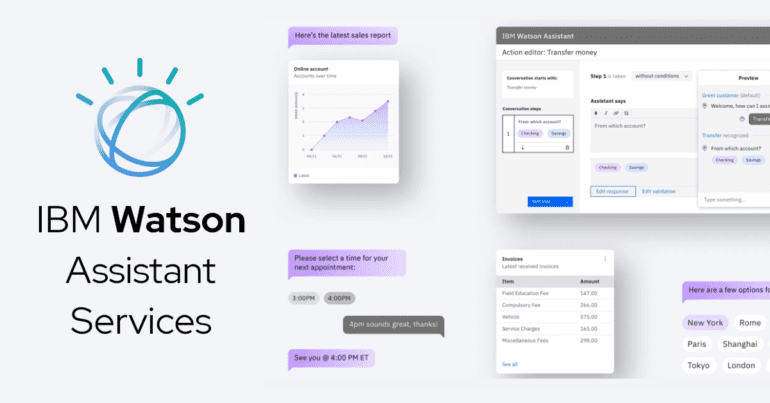TL;DR:
- IBM enhances Watson Code Assistant for COBOL-to-Java translation.
- Addressing scarcity of COBOL developers and accelerating mainframe app development.
- Watsonx Code Assistant for Z leverages AI for automated code refactoring.
- Application discovery tool (ADDI) aids understanding of target app dependencies.
- Unique IBM tool extracts COBOL code for conversion into Java.
- Prototype analyzes COBOL code and data structures to generate Java classes.
- Generated Java code undergoes thorough validation against COBOL output.
- Flexibility for developers to modify and enhance generated Java code.
- Launch of Watsonx Code Assistant for Z with ADDI tools planned later this year.
- Watson Code Assistant extends to Red Hat Ansible Automation Platform.
Main AI News:
In a strategic move aimed at empowering IBM Z systems customers in their quest for application modernization, IBM is taking a giant leap forward with its generative AI-based innovation, the Watson Code Assistant. This cutting-edge technology is poised to address a significant challenge faced by the industry: the scarcity of COBOL-proficient developers and the need for rapid application development for mainframe systems.
IBM, often referred to as Big Blue, is rolling out a remarkable upgrade to its Watson Code Assistant—an extension that can seamlessly translate COBOL code into Java. This enhancement is anticipated to play a pivotal role in mitigating the dearth of COBOL experts and expediting the creation of applications for mainframes.
Drawing from the foundation of the IBM Code Assistant, which was initially previewed in May, this new offering has been christened the “Watsonx Code Assistant for Z.” Leveraging the robust code foundational model of Watsonx.ai, this tool possesses the remarkable capability to generate Java code that flawlessly operates on the Z operating system.
During a comprehensive demonstration video, an IBM spokesperson elaborated on the functionalities of the Watsonx Code Assistant for Z. The tool is being meticulously engineered to encompass automated code refactoring capabilities. This feature will empower developers to extract business services from extensive monolithic COBOL applications—a process that would significantly streamline and enhance the codebase.
Code refactoring, the crux of this transformation, involves converting code into a new programming language while preserving its essence, behavior, and output integrity. In conjunction with this endeavor, developers are expected to interact with the application discovery and delivery intelligence tool (ADDI), a work-in-progress resource designed to facilitate comprehension of target application dependencies and facilitate metadata repository generation, as confirmed by IBM.
A unique IBM tool, distinct from the Watsonx Code Assistant, will be employed to access the workbook and extract the pertinent COBOL code linked to a specific business service. This extracted code will then undergo the conversion process to emerge as efficient Java code, as specified by the company.
The current prototype of Watsonx Code Assistant for Z embodies a multifaceted analysis that encompasses both the COBOL code itself and the intricate data structures inherent in the extracted business service. The culmination of this analysis results in the generation of Java classes that align seamlessly with the original COBOL functionality, as articulated by the spokesperson.
Once the Java code is successfully generated, IBM emphasizes that it is crucial for the output to undergo a rigorous comparison with the original COBOL code. This rigorous validation ensures consistency and functionality. Furthermore, this innovative tool allows developers the flexibility to enhance or modify the generated Java code at any juncture of the process, in line with the company’s statement.
IBM’s Watsonx Code Assistant for Z is poised to launch with an array of indispensable tools, including the ADDI, and is scheduled for general availability later this year. This transformative solution is set to herald a new era of COBOL-to-Java translation and application modernization, with IBM reaffirming its commitment to pushing the boundaries of AI in software development.
Conclusion:
IBM’s transformative Watson Code Assistant for COBOL-to-Java translation tackles the challenge of dwindling COBOL expertise while expediting mainframe app development. By leveraging AI-driven code refactoring and comprehensive analysis, it empowers developers to modernize applications seamlessly. This innovation is poised to reshape the market by bridging the gap between legacy systems and modern software development, reinforcing IBM’s commitment to pioneering AI-powered solutions in the business landscape.

